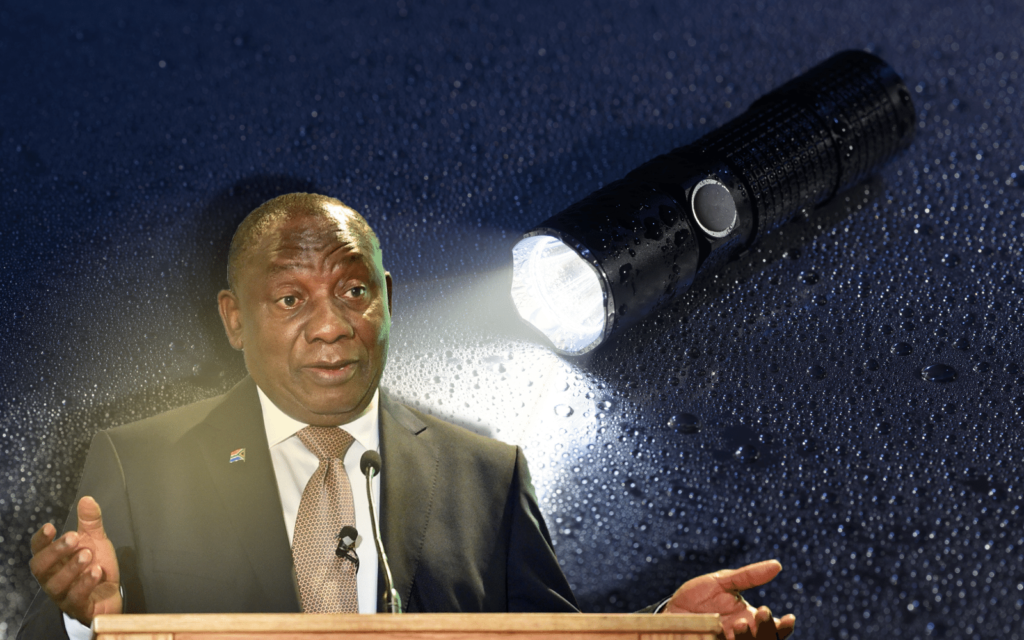We’re dashing your hopes early – load shedding isn’t gone, far from it. But it may soon ease, according to South Africa’s National Energy Crisis Committee (Necom). It believes that the addition of a new law, aimed at fast-tracking plant development, could help pull us from the hellscape that is load shedding.
Yesterday afternoon, Monday 16 January, Necom – which consists of several cabinet leaders in Cyril Ramaphosa’s office, spoke with business and labour leaders, claiming that a number of interventions have been made to try and ease load shedding. Unfortunately, the interventions have arrived at a time when South Africans are plunged into darkness for around 12 hours per day.
“As these measures take effect, the supply of electricity will significantly improve,” says Necom in a presentation sent to Bloomberg. Ironic. As we write this, load shedding strikes the Stuff offices again.
No more half measures, Cyril (or load shedding, please)

To kick things off on the “intervention” list, Necom believes that the first of more than 100 privately developed power plants will be up and running before the end of 2023. When compiled, the total output of all 100+ plants could produce over 9,000MW. But most of that power would be for the companies’ own use.
New laws are being drafted as we tap away at our keyboard, which would allow for faster approval and building of new power plants – hopefully, with power residents can benefit from.
Development of new power plants capable of producing 2,800MW is expected to begin soon, with the contracts already signed off by the government. On top of that, the time needed for regulatory processes to complete has been reduced significantly.
Read More: Nersa approves a 33.77% increase in Eskom tariffs (but it’s not quite as bad as it sounds)
The country has plans to buy 1,000MW of energy from neighbouring countries, adding to a further 1,000MW the country will buy from private producers in the country.
Of the 14 coal-fired power plants in the country, six have been “identified for particular focus” in an attempt to get them up to scratch. Efforts are being made to complete maintenance faster on failing plants along with efforts to complete unfinished plants quicker. We’ve all heard that one before.
You’ll notice that Necom didn’t attach any timeframes to these ‘interventions’. That’s the committee’s way of saving face if its plans don’t pan out. We’re trying not to be cynical and hope that the country can get its act together before a complete grid collapse takes place.
Source: Bloomberg




